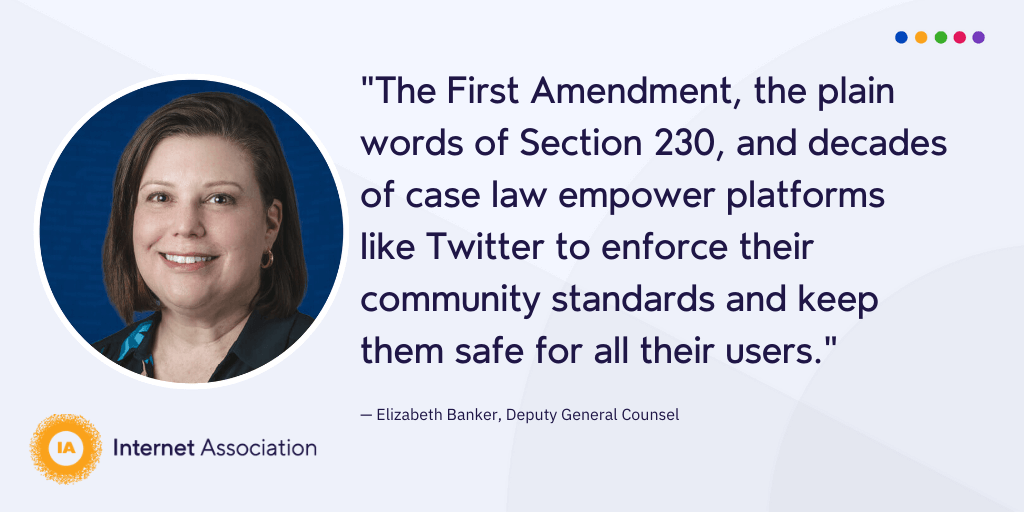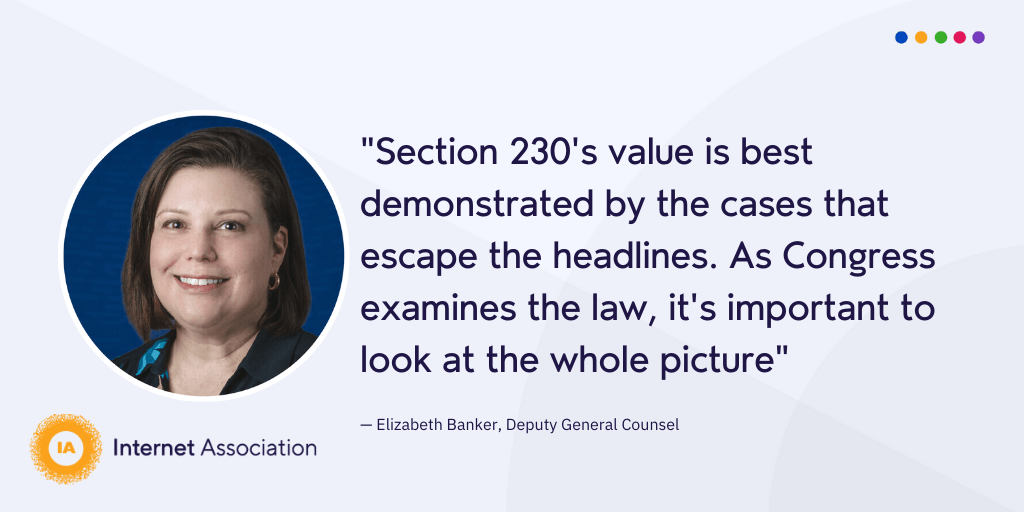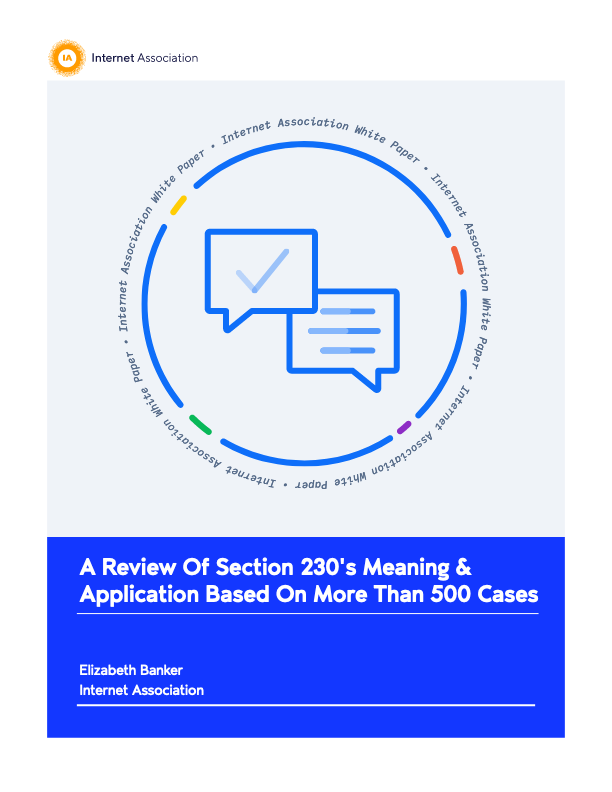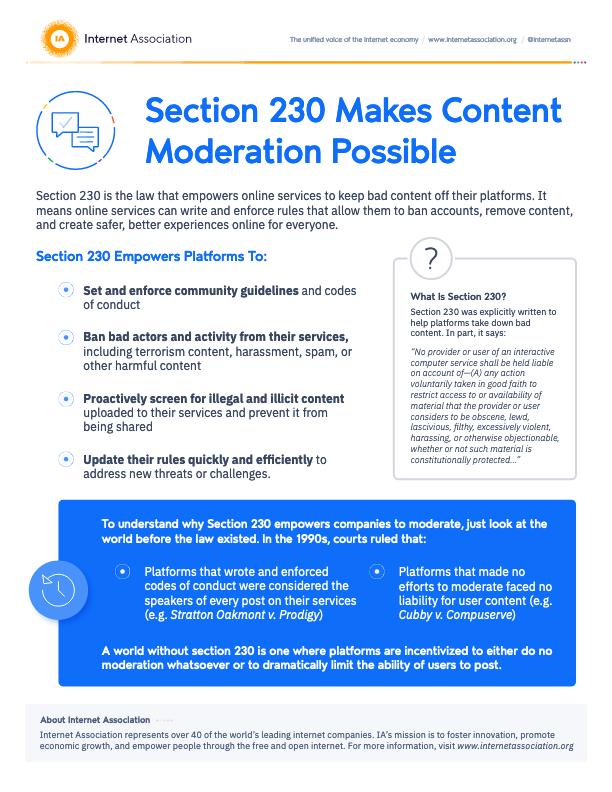This summer, Internet Association (IA) continued to demonstrate Section 230’s critical role in empowering online services to moderate content and create a safe experience for users online. Section 230 enables online platforms to remove harmful content while fostering open discourse and community engagement for users. It plays a foundational role in today’s modern internet and the principles behind a safe, transparent online experience. IA filed two amicus briefs this year in support of Section 230 and released a review of more than 500 court decisions involving the law that found Section 230 is working to protect the internet ecosystem as a whole.
“The First Amendment, the plain words of Section 230, and decades of case law empower platforms like Twitter to enforce their community standards and keep them safe for all their users.”
Elizabeth Banker, IA Deputy General Counsel
IA filed an amicus brief in Murphy v. Twitter urging a California Court of Appeal to uphold that Section 230 empowers platforms to enforce community guidelines. In this case, Twitter suspended and later banned Meghan Murphy’s account after warning her repeatedly to stop violating the service’s rules by misgendering a transgender person. IA’s brief calls on the Court of Appeal to uphold the Superior Court’s decision in dismissing Ms. Murphy’s case because her claims misinterpret Section 230 and more than a decade of case law. Read more here.
“This case demonstrates why Section 230 is so important in empowering sites to remove harmful content while fostering open discourse. The law exists precisely so that services like Vimeo can set community guidelines to protect their users without an endless stream of lawsuits litigating those decisions.”
Elizabeth Banker, IA Deputy General Counsel
IA also filed an amicus brief in Domen v. Vimeo, Inc. supporting Vimeo’s decision to enforce its community guidelines under Section 230, which empowers online platforms to moderate content. In this case, Vimeo removed Mr. Domen’s video after warning him the video violated the platform’s policy against promoting sexual orientation change efforts. While Mr. Domen claims Vimeo’s actions constitute unlawful censorship, Section 230 empowers platforms like Vimeo to both create and enforce community guidelines and engage in robust content moderation efforts, without fear of facing liability for doing so. IA’s brief calls on the U.S. Court of Appeals for the Second Circuit to uphold the district court’s dismissal of the case under Section 230. Read more here.
“Section 230’s value is best demonstrated by the cases that escape the headlines. As Congress examines the law, it’s important to look at the whole picture.”
Elizabeth Banker, IA Deputy General Counsel
In June, IA released the results of a study of more than 500 Section 230 decisions over the past two decades. The study, one of the first to holistically examine the body of Section 230 case law, shows that the law is working well to protect the entire internet ecosystem. IA analyzed more than 500 decisions from the past two decades involving Section 230 in order to better understand, in practice, the variety of parties using the law, how the law is being used, and how courts apply it.
Our review shows that…
- A wide cross-section of individuals and entities rely on Section 230.
- Section 230 immunity was the primary basis for a court’s decision in only 42 percent of decisions reviewed.
- A significant number of claims in the decisions failed without application of Section 230 because courts determined that they lacked merit, or dismissed them for other reasons.
- Forty-three percent of decisions’ core claims related to allegations of defamation, just like in the Stratton Oakmont v. Prodigy Services case that spurred the passage of Section 230.
- Cases involving allegations of federal or state criminal activity were frequently decided in whole, or in part, on other grounds.
- Section 230 protects providers who engage in content moderation, but typically through application of subsection (c)(1) rather than the good faith provision, (c)(2).














